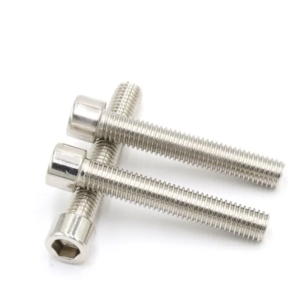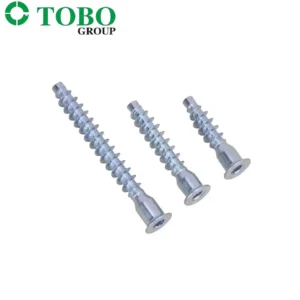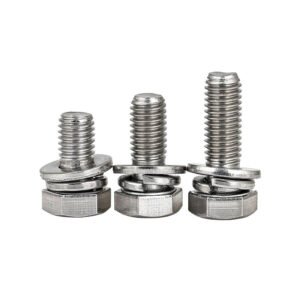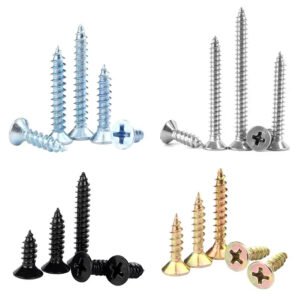In the field of mechanical engineering, lock nuts and screw nuts are widely used in threaded connections. However, despite their similar names, they have different functions and applications. This article will discuss in detail the differences between lock nuts and lead screw nuts.
First, a lock nut is a threaded connection used to secure parts. It is usually made of metal material and has a special structural design on the inside designed to provide extra tightening force. When a lock nut is tightened, its internal structure uses friction to keep it in the desired position, preventing the bolt or screw from loosening or becoming loose. Therefore, locking nuts can effectively increase the stability and reliability of the connection.
A lead screw nut, on the other hand, is a threaded connection device designed for use with a lead screw. Lead screw nuts usually have larger diameters and longer threads to allow them to mate with the lead screw. The function of the screw nut is to convert rotational motion into linear motion or convert linear motion into rotational motion. They are often used in applications requiring large amounts of precise motion in mechanical equipment, such as CNC machine tools, belt conveyors, etc.
In addition to differences in application environments, there are other differences between lock nuts and screw nuts. First, lock nuts usually have an additional thread structure, such as a tooth profile, tooth pad, or elastic washer, to increase friction and tightening force. The structure of the screw nut is relatively simple, including only the threaded part and the connecting part.
Secondly, there are some differences in the use of lock nuts and screw nuts. For the lock nut, it needs to be tightened correctly during installation to ensure the stability of the bolt or screw. The screw nut usually needs to be lubricated and maintained at certain intervals to ensure its normal operation on the screw.
Finally, lock nuts and lead screw nuts also differ in their service life. Because lock nuts are subject to large loads and vibrations, their service life is relatively short. Screw nuts, on the other hand, usually bear smaller loads, so their lifespan is usually longer.
To sum up, there are obvious differences in functions and applications between lock nuts and screw nuts. Locking nuts are mainly used to fix and strengthen threaded connections, providing additional tightening force. The screw nut is used to convert rotational motion into linear motion or linear motion into rotational motion. For different application scenarios, we need to choose appropriate threaded connectors to ensure the stability and reliability of the equipment.




